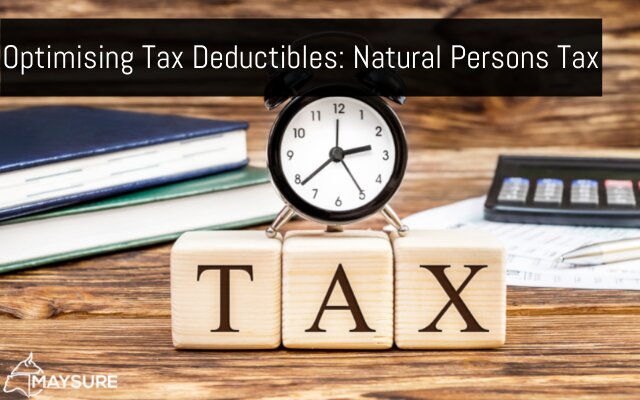Financial Year-End Preparation: A Comprehensive Guide for South Africans
Introduction:
As we approach the year’s end, it becomes increasingly important for individuals and businesses across South Africa to embark on their financial preparations. Sound financial planning and thorough assessments play a pivotal role in securing a stable and prosperous future. In this post, we’ll delve into essential financial checkpoints, emphasise the significance of financial literacy, and provide you with valuable insights to ensure you’re well-prepared for the year’s end. So, let’s embark on this journey together toward financial confidence and success!

The Significance of Financial Literacy:
Before delving into specific financial preparations, it’s essential to highlight the importance of financial literacy. Financial literacy empowers individuals and businesses to make informed decisions about money management, investments, and financial planning. In South Africa, where economic conditions can be challenging, being financially literate is a valuable asset. It allows you to navigate the complex financial landscape with confidence and make choices that align with your financial goals.
Before we dive into year-end financial preparations, let’s shine a spotlight on something truly invaluable: financial literacy. This kind of knowledge equips individuals and businesses alike to make well-informed decisions about managing money, making investments, and crafting financial plans that work. In South Africa, where economic conditions often pose challenges, being financially literate is like having a superpower. It enables you to confidently navigate the intricate financial terrain and make choices that harmonise with your unique financial aspirations.

Financial Checkpoints for Year-End Preparation:
As the year draws to a close, it’s the perfect time to embark on a journey of financial reflection and planning. We’re here to guide you through the essential checkpoints to consider before the year-end. These checkpoints will help you make the most of your financial resources and set you on a path toward greater financial well-being. So, let’s take a look at these critical financial checkpoints in order to make a real difference to your finances.
Now that we’ve stressed the importance of financial literacy, let’s dive right into these critical financial checkpoints that are essential to consider at this time of the year. These are the stepping stones that will help you harness your financial resources effectively and pave the way for a brighter financial future.
1. Analyse Where Your Money Went:
Take a moment to look back at your spending over the past year and see if you were able to meet your savings goals. It’s all about understanding the money that came in and went out. By doing this, you can spot the areas where you might have overspent or missed out on potential savings. This kind of deep analysis isn’t about being hard on yourself; it’s about making informed choices to improve your financial habits. So, if you’ve been wondering how to save more or where you can cut back, this exercise can be a great starting point.
2. Review Your Budget vs. Spending:
Assessing your budget to determine where you’ve overspent or underspent in various areas is a fundamental step in gaining insight into your financial habits and making informed adjustments to achieve your financial goals. Ensure your debt and savings levels are manageable and within reasonable ratios. This evaluation ensures that your financial resources are allocated optimally.
3. Pro Forma Tax Forecast:
Perform a pro forma forecast of taxes to make necessary adjustments before year-end.
Consider strategies like charitable contributions or timing expenses to optimise your tax situation. This proactive approach minimises tax burdens while maximising savings.
4. Review Your Credit Report:
Regularly review your credit report for accuracy and identify any potential signs of identity theft. Utilise your free annual credit report from Transunion to stay informed. A clean credit report is vital for accessing credit and financial opportunities.
5. Check Recurring Expenses for Increases:
Examine consistent yearly expenses for cost increases, especially during times of inflation.
Evaluate your budget to create a financial buffer against unexpected events. Identifying areas where you can cut costs ensures financial resilience.
6. Review Charitable Contributions:
Consider maximising charitable contributions to lower your tax bill while benefiting your community. Leverage the tax benefits available for high-income earners through charitable giving. Supporting causes you care about can align with your financial goals.
7. Trim your budget by eliminating unnecessary expenses, freeing up funds for savings or emergencies.
Identify monthly or annual expenses that can be reduced or eliminated. Prudent spending choices lead to improved financial well-being.
8. Check and update beneficiaries on your investments, bank accounts, and assets.
Ensure your financial assets are protected by having powers of attorney in place. Clarity in beneficiary designations safeguards your financial legacy.
9. Update Your Estate Plan:
Evaluate your estate plan in light of significant life changes, such as marriage, parenthood, or relocation. Inventory all assets, including digital assets, and update documents like wills or trusts. A well-structured estate plan secures your financial legacy for generations to come.

Conclusion:
Properly preparing for the end of the financial year in South Africa is crucial for financial stability and success. By following these financial checkpoints and maintaining financial literacy, individuals and businesses can navigate economic challenges and secure a prosperous future. Maysure Financial Services is committed to helping you achieve your financial goals and providing expert guidance in these uncertain times. Get in touch with us today to start your journey.
























































